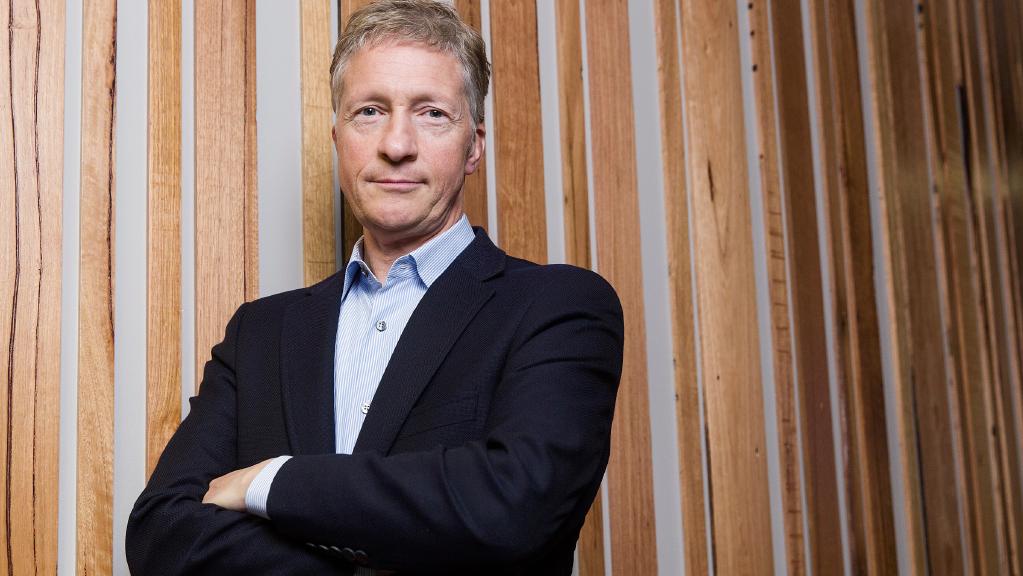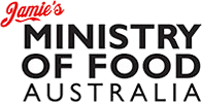Retail wisdom helps Good Guys’ Andrew Muir come first

It is the vision of most parents running a family company: to see their children one day take over the business. To carry on the legacy.
From the nation’s top multi-billion-dollar corporations to the corner stores of Australian suburbia, the dream — usually built on blood, sweat and tears — often lives on in the next generation.
Except in the world of the nation’s newest billionaire.
Good Guys executive chairman Andrew Muir has always lived by a simple mantra, which he explains publicly for the first time in a single sentence.
“Just because I am born with the genes doesn’t mean I am the best person to run the business,” he tells The Weekend Australian in his only media interview after pulling off the deal of his life, the $870 million sale to JB Hi-Fi of the whitegoods firm his father started in the Melbourne suburb of North Essendon in 1952.
For the first six months of 2016, the Good Guys — the chain best known for its annoyingly catchy advertising jingle based on the Beach Boys hit Good Vibrations and the “pay cash, pay less” slogan — was destined to float on the sharemarket.
Complex joint venture structures between the Muir family’s private company and individual store managers had been unwound, centralised buying and merchandising systems were finally in place, and the float would give the company the capital to embark on the next stage of its growth journey.
That is, until JB Hi-Fi boss Richard Murray intervened with an offer simply too good to refuse.
The rest is now history — the union, formalised earlier this month, created the nation’s biggest home appliances retailer.
But ask Mr Muir if he has any regrets about his children never having the opportunity to follow in his footsteps as he did in taking over running the business founded by his father Ian, and his answer is instant. And breathtakingly blunt.
“I did not want to inflict — and I use the word inflict — the business on my kids,” he says slowly and deliberately, looking you straight in the eye. “It is simply not fair on the kid. My philosophy is the kids should be able to do what they want to do, get their own education, live their own dreams.” His eldest son has just turned 18.
Dressed in jeans, plain white shirt and a simple blue suit jacket, the slightly quirky Andrew Muir looks every bit the father of a young suburban family (his youngest is three) and anything but a high-flying billionaire.
The only hints of his wealth came in 2007 when he reportedly paid $18m for Steve Vizard’s two-storey English mansion in Toorak, or last year when he paid $19m for the historic Baillieu House at Sorrento.
Ten weeks have passed since the JB Hi-Fi deal was signed and over four decades in business Mr Muir has rarely spoken to the media.
“Our internal rules were that any group PR or media were to be conducted by me. And of course I didn’t conduct any,” he says nonchalantly but with obvious glee.
Before him sits what looks like a security blanket for today’s encounter — printed copies of his recent private speeches to his staff and other functions, in neat piles, ordered chronologically. Or perhaps he is just extremely well prepared.
Certainly one thing becomes abundantly clear: The veil of privacy that surrounds the Muir family fortune will not be lifted today. Even his age remains a mystery. “Near 50” is all he will say.
The Australian has reported that the spoils of the JB Hi-Fi sale will be divided between Mr Muir, his mother Joan Muir, 83, and sister Carolyn Muir, 51, who has significant pastoral interests near Ivanhoe and Moama on the Murray in NSW.
“I’m not going to answer that,” he says when asked to comment on the issue.
But turn to the history of his iconic company and the lessons learned from decades in one of the toughest sectors of retail, and Mr Muir is on far safer ground.
What Ian Muir started as the Mighty Muir’s whitegoods chain was 40 years later renamed The Good Guys by his son.
Its goal, as Muir Jr puts it, was simple: “To out-Retravision Retravision.”
Under Andrew Muir The Good Guys opened or acquired more than 80 stores, including seven from the administrators of failed electronics retailer Brashs, lifting its network from 14 to 90 and boosting sales to $2bn.
As The Good Guys thrived, rivals like Clive Peeters, Rick Hart, Clive Anthonys, Betta Electrical, Retravision and most recently Dick Smith fell by the wayside.
In the year before the sale to JB Hi-Fi, the company’s 65th, Mr Muir says it generated the best sales result in its history.
“Ego has destroyed most of the competitors, the businesses in our industry. When you look at the more entrepreneurial types that were my father’s contemporaries … they wanted growth for growth’s sake … it is extremely difficult to compete against when the opposition is determined to go broke. Because they are making irrational business decisions. It is really difficult to survive when all that is going on,” he says.
Yet Muir never asked for the life that has now made him one the richest people in the country.
His formative years were spent working on the shop floor of Mighty Muir’s and studying economics and financial management. After graduating from university he worked at accounting firm Coopers and Lybrand before his father confronted him one morning with a dilemma. It would change his life.
Ian Muir’s veteran numbers man had been diagnosed with a life-changing illness. It appeared the only option was to sell the business. Unless Andrew might consider stepping in as the group’s accountant for a time. His son reluctantly accepted.
“He had never, ever raised at the dinner table or any other time that, ‘One day, son, this will be yours’. He never said it and I never assumed it. It was never in the family discussion,” Mr Muir says.
“I worked in the back room of the accounting office for four to five years. And then gradually came into the business. The way he handed it over was priceless. I was very lucky.”
Asked what was his father’s greatest teaching, he replies without hesitation: “The long-term view, that unwavering persistence. Sometimes even just surviving is winning, especially in really tough eras.”
Reflecting the football parlance of his beloved Essendon Football Club — he became a director of the club in March last year — Mr Muir says his father taught him to “recognise when it is your turn to go. And go.”
Ian Muir also taught his son the value of the profit-sharing model in retail. “He had a funny saying on the profit-sharing thing — he would rather incentivise someone in the company … but if something wasn’t making money he would say, ‘half of a profit is better than a whole of a loss’.”
There was a turning point in the business in 2003 for Mr Muir when he says he resolved to “sack himself”.
“We got to $1bn in sales. And I had never run a $1bn business before — I thought I’d better find out how to do that,” he says.
Mr Muir had earlier initiated overseas study tours for staff to learn from the best of the best around the world. So he signed himself up for a 10-week course at Harvard.
“I came back and realised I was not the right person to grow this from $1bn to $2bn … I was prepared to fall on my sword. I knew if I continued I would restrict the business only to my competency level. You want to give the business its best possible opportunity to succeed,” he says.
The firm then appointed Michael Ford as its CEO and in 2005 Mr Muir took the role of executive chairman. Mr Ford now remains at the helm of The Good Guys, reporting to JB Hi-Fi’s Mr Murray. The two businesses maintain separate structures with independent support offices.
Mr Muir says being a private company always allowed him to take a long-term view.
“My competitors who are chasing a quarterly report cycle — and it seems to be getting worse and worse — are certainly up against it. That pressure inevitably requires them to go to tactics rather than strategy,” he says, before adding the words of Chinese general Sun Tzu: “Tactics without strategy is noise before defeat.”
So why then pursue a float of the business? The listing project, known as Project Everest, went on for more than a year after previous failed attempts to sell the business, including to JB Hi-Fi.
Mr Muir is clear he was never going to be the chairman of a listed Good Guys, but would have remained on the board.
“It was the best model for our new growth strategy. Our joint venture structure, which had served us very well, had exhausted itself. It was the best way to be able to compete and grow and invest in our business beyond the families’ very limited capital.
“That was always limited as a privateer.
“You were competing against people with deeper pockets. So we had to float,” he says.
“In my view retail is not a marathon. It is a series of marathons. It is how you stitch one marathon to the next and how you bring people along with you for the ride on to the next marathon. That is the art, not necessarily the science.”
When the talks with JB Hi-Fi became serious, Mr Muir says one fundamental question remained at the forefront: will it be a safe landing point for the staff?
“You don’t want to sell to someone who is going to ransack and cut the guts out of the business,” he says.
“JB seemed to have good values. And here is the romantic part — JB started in Essendon as well. They were a small northern suburbs family just like us … I am an employer first and foremost. So you don’t want your business to fall on its face and end up in tears — it is the staff that get hurt. I always wanted to do the best thing for my staff.”
Mr Muir has long believed that as a business leader he has an obligation to give back to the community personally.
“I don’t want to buy racehorses,” he says with a smile.
In 2010, he established the Good Foundation to promote community health and nutrition initiatives. It supports Jamie Oliver’s Ministry of Food campaign in Australia.
Mr Muir has also been chairman of The Good Guys Foundation since it was established in 2010 and driven the Good Guys Local Giving Program, which has donated over $8m to charity organisations across Australia.
He plans to establish a new family foundation with part of the proceeds of the JB sale. But in the interim his charitable passion is Orange Sky Laundry, co-founded by Young Australians of the Year Nicholas Marchesi and Lucas Patchett.
Their custom-fitted vans now service parks and drop-in centres across Brisbane, Sydney and Melbourne providing homeless people with the opportunity to have their clothes washed and dried.
Outside the not-for-profit space, Mr Muir has a stake in the big-box pet care business that he founded, Best Friends Pets, alongside private equity outfit Archer Capital. It now has 30 stores.
Two years ago he also established his own website, andrew muir.com.au. It looks on the face of it like an ego trip. But given his penchant to avoid the media, he claims it was simply driven by practicality. A chance to tell his story on his own terms.
“It was a pragmatic way to control the brand and to extol the family values of the business,” he says.
Despite his wealth, ego has always been a taboo word in Muir’s word. Like his father, he has lived by the motto: Control your own ego at all times.
“Do not delude yourself you are better than anyone else,” he says proudly.
“What your business stands for — the values, culture, what it stands for — determines who wants to work for you. And that determines how your customers are served.
Credit: Damon Kitney
(c)News Limited Australia. All rights reserved.
The Australian, The Good Guys




